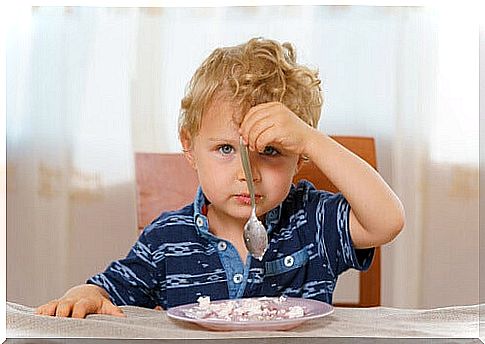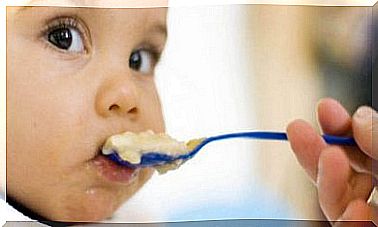What If My Child Is Underweight? – Being Parents

My child is underweight, what should I do to help him or her? This question can be a source of anxiety for mothers when their little one has eating problems. Here’s what you need to know about it.
In society, being overweight is frowned upon, especially among the youngest in the household. Likewise, malnutrition can alert people.
An underweight child should alarm parents in case the root cause of the problem is unknown. Adults tend to make the mistake of letting kids eat all the junk food they want.
They think it will help them gain weight in a healthy way. Obviously, this is not the case.
In fact, the best way for little ones to gain weight is to change bad eating habits. Good change begins with knowing and choosing foods that are high in acceptable nutrients, vitamins, and calories.
First thing to do if my child is underweight
First of all, you should always start by consulting a doctor. He will determine what is best for your child. Examinations accompanied by medical advice will always be the best option.
What are the reasons my child is underweight?
Heredity
The parents’ constitution may be passed on to the child; if they are thin, so will the little one. If not, a medical evaluation should be done to determine the reason for the underweight.
Little interest in food
In general, children like to eat. Not everything, but there is a wide variety of foods that they enjoy and savor. Therefore, if the child shows little interest in eating, it may be a sign of a medical or psychological disorder.
Another cause can be hormonal imbalance or low metabolism, such as diabetes or hyperthyroidism. The child may also be allergic to certain foods or suffer from gastrointestinal problems; which makes eating uncomfortable.
The harassment
Before adolescence, children tend to develop eating disorders as a result of social pressure. The harassment, in this sense, can lead to bulimia.
Physical activity
Excessive physical activity promotes an accelerated metabolism; in some cases, this situation does not allow the correct assimilation of food.
How do I get my child to reach the ideal weight?
An ideal weight during childhood is fundamental for good long-term health. Exercise combined with a good diet will keep our children healthy. In addition, you can also take into account the following aspects:
Frequent meals
Feeding low weight infants frequently is a good strategy. What matters is not just what they eat, but how often they eat. Young children have smaller stomachs and need to eat five to six times a day.
Healthy habits as a family
If the child and the rest of the family maintain good eating habits at home, the little ones will adopt this lifestyle more easily. This, of course, is beneficial for stable health.
Therefore, it makes sense to combine effective exercise rituals with a healthy diet. Physical exercise greatly stimulates the appetite; exercising before meals can help.
In addition to all of the above, it is advisable to avoid harmful foods like cakes, soft drinks, cookies, and fast food.
The risk of developing health problems from eating these foods (such as diabetes or heart disease from excess fat) is much higher.
“Adults tend to make the mistake of letting kids eat all the junk food they want. They think it will help them gain weight in a healthy way. Obviously, this is not the case ”
What can I do to make my child gain weight?
The first thing to do is to review the family’s eating habits. Changing them to be healthier is the best option. This is because drinks with a high sugar level and high calorie meals should be avoided if you are looking to increase weight in a healthy way.
Instead, the best alternatives are those foods that have a balanced level of calories and nutrients and that provide vitamins and minerals. Having a variety of these foods can help you craft a plethora of menus for your child to enjoy.
It is recommended to have a diet rich in carbohydrates (pasta, bread, cereals), with portions of vegetables and fruits, proteins (meat, fish, cereals and eggs) and dairy products.
On the other hand, you should avoid consuming too much fiber: whole-grain rice or whole-grain pasta reduce the child’s appetite.

On the other hand, fats are not always bad for the body. For example, vegetable fats are a nutritional aid for a quality diet.
Seeds and dried fruits are great options to supplement a nutritious diet . It’s a smart choice for the afternoon snack.
For children who are not big fruit lovers, juices with milk, natural ice creams and fruit salads are perfect. In the case of vegetables, you can prepare delicious purees, omelets and cakes to make them more appetizing.
The intention behind all of this change in diet is to provide the necessary nutrients for the child to be well nourished and achieve healthy weight gain.
Sometimes changes are difficult but necessary and even more so if the health of the children at home is at stake.









